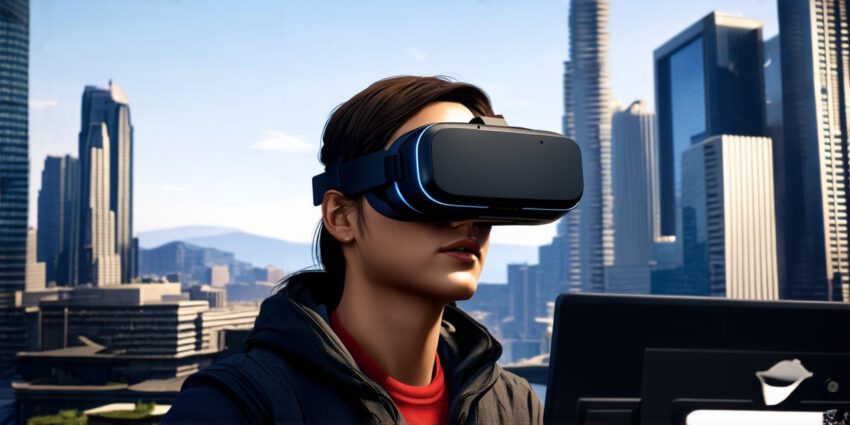Virtual reality (VR) is becoming an increasingly popular technology, with many industries beginning to explore its potential. However, virtual reality has the power to revolutionize app development, particularly in the mobile gaming industry. In this article, we will explore how VR can be used to create immersive and engaging mobile gaming experiences that will keep players coming back for more.
Introduction
Virtual reality is a technology that simulates a 3D environment in which users can interact with digital objects. This technology has been around for decades, but recent advancements have made it more accessible and affordable than ever before. Virtual reality has the potential to revolutionize many industries, including gaming. Mobile gaming apps have already started incorporating VR elements into their games, and this trend is likely to continue.
Immersive Gaming Experiences
One of the biggest advantages of virtual reality in mobile gaming is its ability to create immersive gaming experiences. By placing players in a 3D environment, VR allows them to fully engage with the game world and feel like they are truly part of the action. This can be particularly effective in games that require physical movement, such as sports or adventure games.
For example, consider the popular mobile game, Pokémon Go. While this game is not specifically designed for VR, it has incorporated some VR elements to enhance the gaming experience. Players can use their phone’s camera to scan real-world environments and catch virtual creatures, which adds a layer of immersion that is not possible with traditional mobile games.
Another example is the game, “Job Simulator” by Oculus VR. This game places players in a virtual office environment where they can simulate different tasks such as answering phones and making coffee. The use of VR technology makes this game much more immersive than traditional desktop or mobile games, giving players a real sense of what it’s like to work in an office setting.
Incorporating Virtual Reality into Game Development
Virtual reality technology has the potential to completely revolutionize game development. With VR, developers can create games that are much more immersive and engaging than traditional games. This technology also allows for greater flexibility in terms of game design, as developers can create environments and characters that would be impossible or extremely difficult to achieve using traditional methods.
For example, the game “Beat Saber” is a popular VR rhythm game that has been praised for its immersive gaming experience. The use of VR technology allows players to completely immerse themselves in the game world and feel like they are truly part of the action. This game also uses virtual reality to create a unique experience, as players must physically move their arms to hit incoming blocks with light sabers.
Another example is the game “Job Simulator” by Oculus VR. As mentioned earlier, this game places players in a virtual office environment where they can simulate different tasks such as answering phones and making coffee. The use of VR technology allows for a level of immersion that is not possible with traditional games, giving players a real sense of what it’s like to work in an office setting.
Benefits of Virtual Reality in Mobile Gaming
Virtual reality has the potential to bring many benefits to mobile gaming. Here are just a few examples:
- Increased Engagement – Virtual reality can create a more immersive and engaging gaming experience, keeping players coming back for more.
- Unique Gameplay – Virtual reality allows for greater flexibility in terms of game design, which means that developers can create games that are much more unique and innovative than traditional games.
- Competitive Advantage – By incorporating VR technology into their apps, mobile gaming companies can gain a competitive advantage over their rivals by offering a more immersive and engaging gaming experience.
- Improved User Experience – Virtual reality can improve the overall user experience by providing a more realistic and interactive way to engage with the game world.


